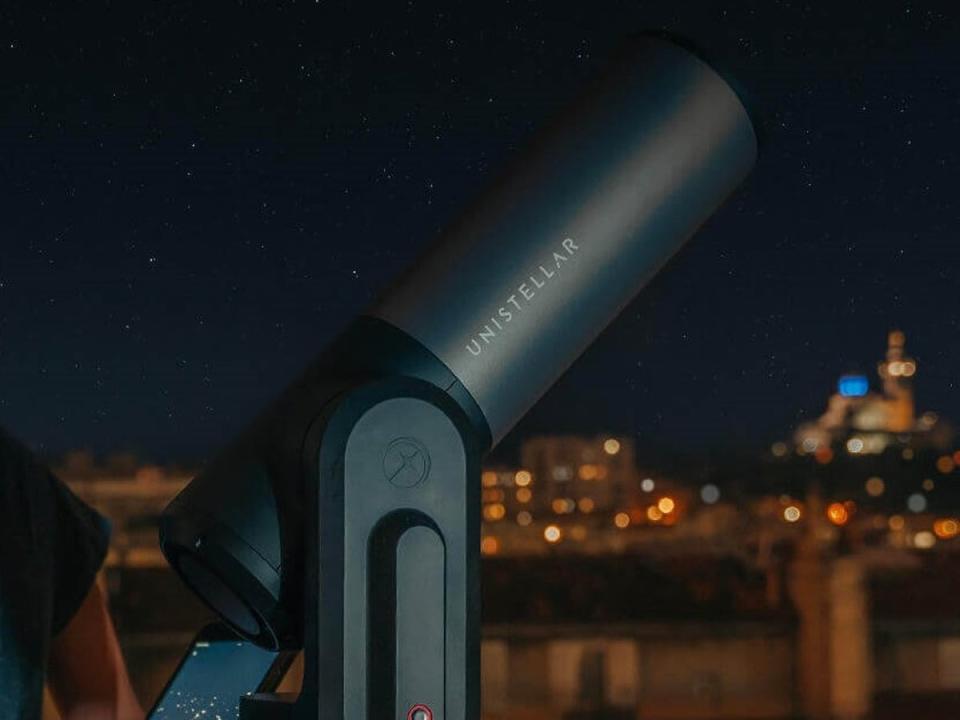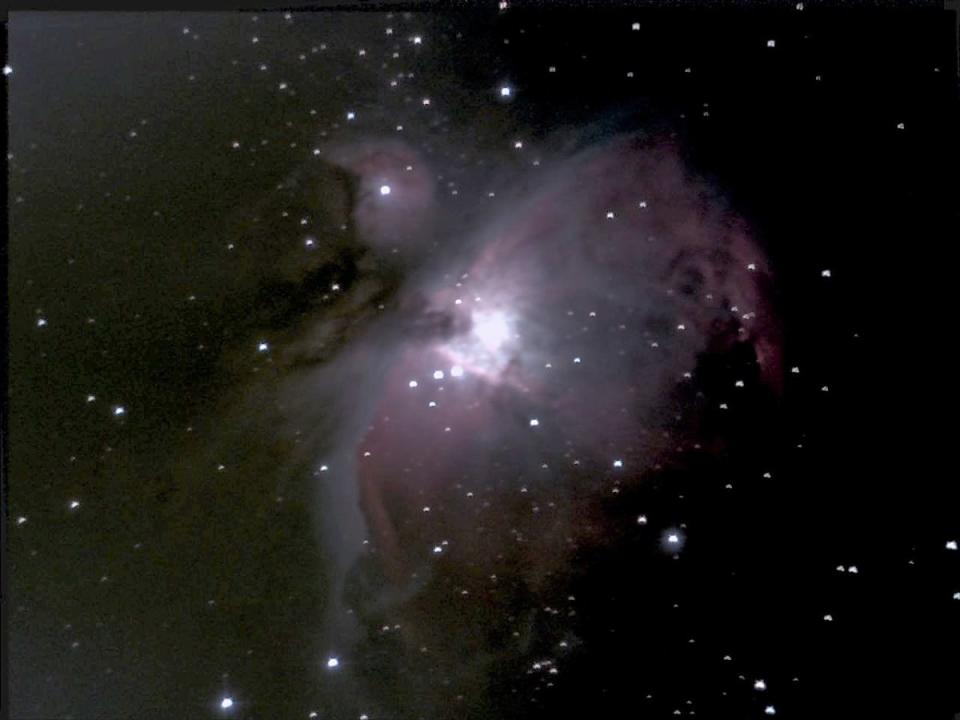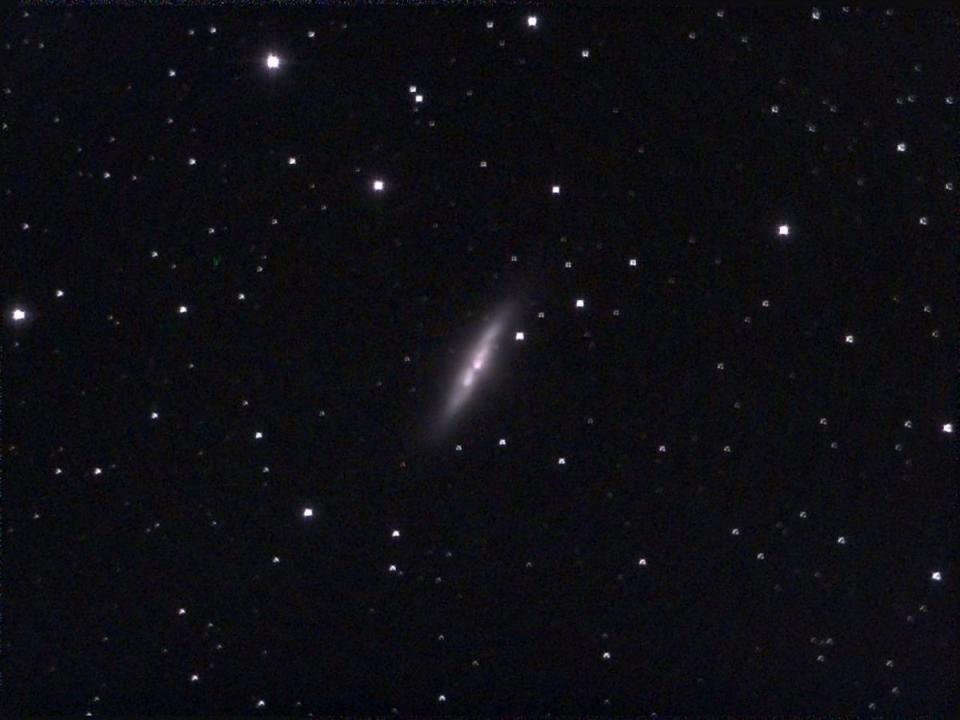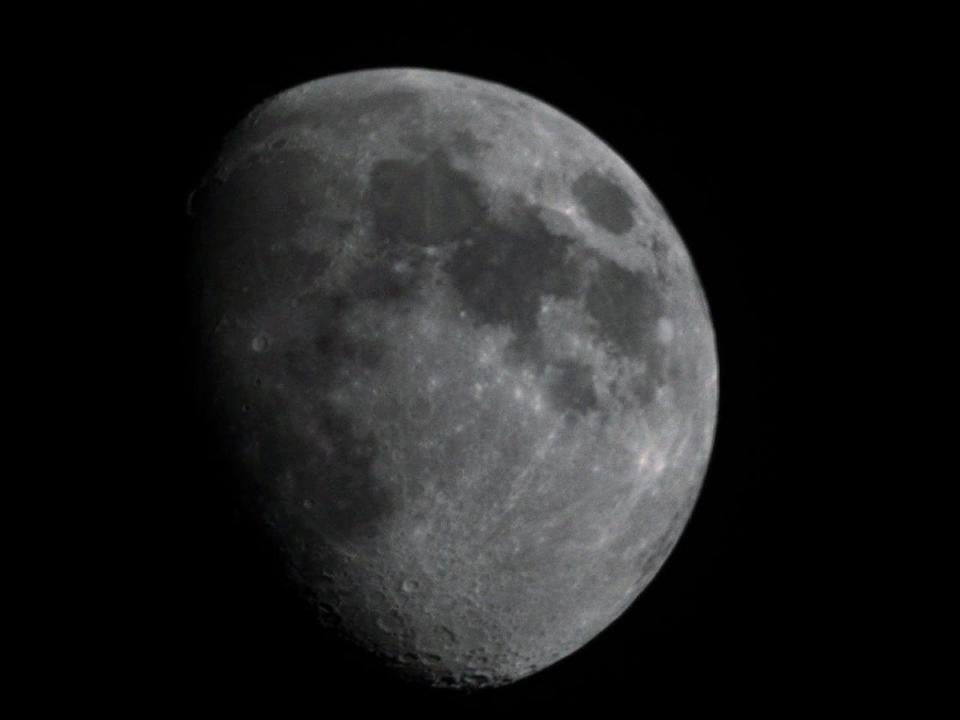Unistellar eQuinox 2: Smart telescope startup wants to ‘revolutionise’ astronomy

When Laurent Marfisi was 11-years-old, he stood in his back garden in the south of France and looked up at the night sky through a telescope. Together with a friend, he marvelled at the shadows of the craters on the Moon, and tried to focus in on a fuzzy planet or two. But without any deep knowledge of astronomy, the pair struggled to find any other celestial wonders.
It sparked an idea that two decades later would materialise in the form of one of the world’s first commercially available smart telescopes.
“We kept that memory and years later we grew the idea of making it as simple as possible for people,” Marfisi tells The Independent. “This was the telescope of our dreams, and the dream of anyone who wants to see the sky.”
The guiding idea of their startup Unistellar is to make astronomy as accessible as possible, regardless of a person’s experience level or location. Even a complete beginner in the middle of a city can succeed in seeing a distant galaxy or the rings of Saturn.
Unistellar claims that its latest addition, the eQuinox 2, offers a “revolutionary space viewing experience” that uses AI algorithms to digitally eliminate the negative effects of light pollution from cities.
This means anyone, pretty much anywhere, can observe and capture images of the solar system and deep space – from the craters on our own moon, to the spectacular colours of the Orion Nebula.

When it comes to operating a telescope, I am as beginner as they come. I’ve never before operated anything more powerful than a £100 backyard telescope, so trying the £2,199 eQuinox 2 was a major step up. Yet despite being more than 20 times more expensive, it was also 20 times easier to use.
After downloading the Unistellar app and connecting my phone wirelessly to the eQuinox 2, the telescope was able to use GPS tracking and star mapping to figure out exactly where it was and what it was looking at.
One of the company’s taglines is “you’re two minutes away from the universe”, with the hope being that people spend more time exploring and less time calibrating.

Once set up, I was able to begin browsing through a database of more than 5,000 objects that the eQuinox would then point to with one press. The automated tracking meant night sky objects are kept in view during longer exposures that reveal more detail and colour.
The only real barrier to Unistellar’s goal of making astronomy more accessible is the cost, with customers having to pay nearly double that of the eQuinox 2 for the eVscope 2, which comes with an electronic eyepiece.
There are three reasons for using a telescope: Taking pictures of the night sky; Making astronomical observations of the night sky; And simply observing. For the first two, this telescope is well suited. For the third, you may want to pay the extra and get the version with the viewfinder. There’s something not quite the same as looking at a planet or galaxy on the screen of your phone – a feeling that you probably could’ve just googled it.

The French startup has sold more than 10,000 telescopes to people around the world since launching on a crowd-funding platform in 2017, with each customer having access to citizen science projects listed in the telescope’s companion app. Marfisi says roughly 10 per cent of users opt to take part in these projects.
Dozens of Unistellar users were recently credited in the leading scientific journal Nature for making a “major scientific breakthrough” after collectively observing the aftermath of Nasa’s Double Asteroid Redirection Test (DART) – a planetary defence mission aimed at understanding how to save Earth from asteroids.

It was the eighth time Unistellar users have been named as co-authors in a peer-reviewed journal for their findings, with the smart telescopes also holding the world record for the longest Earth-based observation of an exoplanet: 27 hours.
“One of the main strengths of Unistellar is we have a worldwide network of many telescopes that allows continuous observations of the night’s sky, because it’s always night somewhere in our network,” Marfisi said.
He hopes that his company will be part of a new era “where the general public becomes a decisive player in the conquest of space, holding the key to more discoveries and wider dissemination of scientific knowledge”.

 Yahoo Finance
Yahoo Finance 